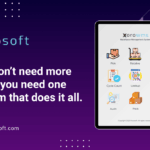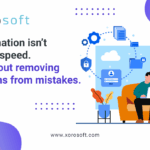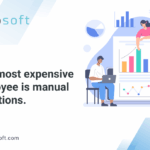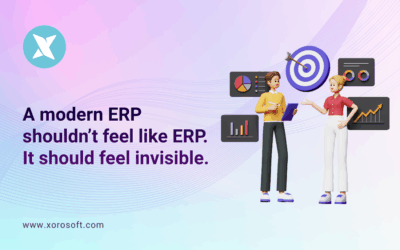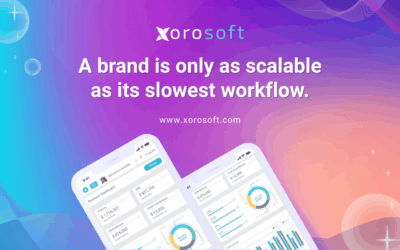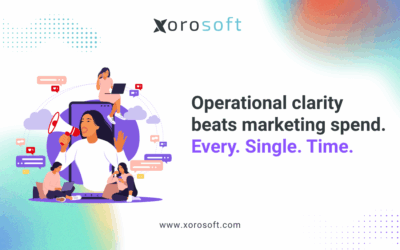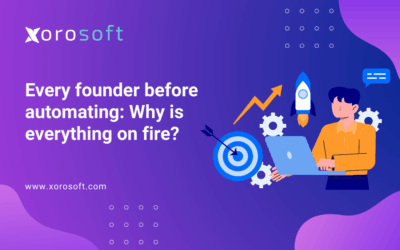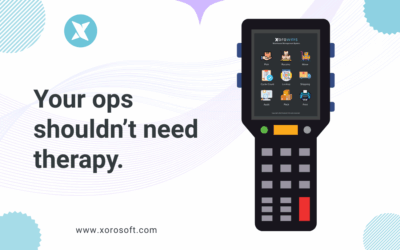
As businesses continue to grow and expand, it becomes increasingly challenging to manage all the various operations and processes involved. To stay competitive, companies need to be able to streamline their operations, improve efficiency, and reduce costs. One way that businesses are achieving this is through the adoption of ERP systems. In this article, I will provide an in-depth look into the benefits of ERP systems, how to implement them, and why Xorosoft ERP is the future of business operations.
Introduction to ERP Systems
ERP stands for Enterprise Resource Planning, and it is a software system that helps businesses manage their day-to-day operations. ERP systems integrate all aspects of a business, including finance, accounting, human resources, supply chain management, and customer relationship management. This integration allows businesses to manage their operations more efficiently and effectively.
What is Xorosoft ERP?
Xorosoft ERP is a cloud-based ERP system that provides businesses with a comprehensive solution for managing all aspects of their operations. Xorosoft ERP offers a wide range of features, including financial management, procurement, inventory management, supply chain management, and customer relationship management.
Xorosoft ERP is designed to be user-friendly and easy to use, even for those who are not tech-savvy. The system is highly customizable, allowing businesses to tailor it to their specific needs and requirements.
Benefits of ERP Systems
Increased Efficiency and Productivity
One of the primary benefits of ERP systems is that they can significantly increase efficiency and productivity. By integrating all aspects of a business, employees can access the information they need quickly and easily. This reduces the time spent searching for information and allows employees to focus on more important tasks.
ERP systems can also automate many of the time-consuming tasks involved in day-to-day operations, such as data entry and report generation. This frees up employees to focus on more strategic tasks, such as business development and customer service.
Improved Data Management and Analysis
Another benefit of ERP systems is that they provide businesses with improved data management and analysis capabilities. With all data stored in a centralized location, businesses can access real-time data on all aspects of their operations. This allows them to make informed decisions quickly and easily.
ERP systems also provide businesses with advanced reporting and analytics capabilities. This allows businesses to gain insights into their operations and identify areas for improvement.
Cost Savings
ERP systems can also provide businesses with significant cost savings. By automating many of the time-consuming tasks involved in day-to-day operations, businesses can reduce the need for manual labor. This can result in reduced labor costs and increased efficiency.
ERP systems can also help businesses reduce inventory costs through improved inventory management. By providing real-time data on inventory levels and demand, businesses can reduce the amount of inventory they need to keep on hand.
Improved Customer Service
Lastly, ERP systems can help businesses provide better customer service. By integrating all aspects of a business, businesses can provide customers with a seamless experience. This includes everything from order processing to customer support.
ERP systems can also provide businesses with real-time data on customer behavior and preferences. This allows businesses to tailor their products and services to meet the needs of their customers.
How to implement an ERP System
Implementing an ERP system can be a complex and challenging process. However, with the right planning and preparation, businesses can ensure a smooth transition.
The first step in implementing an ERP system is to define your goals and objectives. This will help you identify the features and functionality you need from your ERP system.
The next step is to choose an ERP system that meets your needs. This should involve researching different ERP systems and evaluating their features and functionality. You should also consider factors such as cost, ease of use, and scalability.
Once you have chosen an ERP system, the next step is to prepare your data for migration. This may involve cleaning and consolidating your data to ensure that it is accurate and complete.
Finally, you will need to train your employees on how to use the new system. This may involve providing training sessions and workshops to help employees become familiar with the new system.
Challenges of Implementing an ERP System
Implementing an ERP system can be a challenging process, and there are several common challenges that businesses may face.
One of the most significant challenges is data migration. Migrating data from existing systems can be complex and time-consuming, and it is essential to ensure that the data is accurate and complete.
Another challenge is employee resistance. Employees may be resistant to change, particularly if they are used to working with existing systems. It is essential to involve employees in the implementation process and provide them with the training and support they need to become comfortable with the new system.
Finally, cost can be a significant challenge for businesses. Implementing an ERP system can be expensive, and it is important to carefully evaluate the costs and benefits of the system before making a decision.
Why Xorosoft ERP is the Future of Business Operations
Xorosoft ERP is the future of business operations because it provides businesses with a comprehensive solution for managing all aspects of their operations. Xorosoft ERP is highly customizable, allowing businesses to tailor the system to their specific needs and requirements.
Xorosoft ERP is also highly scalable, making it suitable for businesses of all sizes. The system is cloud-based, which means that it can be accessed from anywhere, at any time. This provides businesses with the flexibility they need to manage their operations effectively.
Finally, Xorosoft ERP is backed by a team of experts who provide ongoing support and assistance. This ensures that businesses can get the most out of the system and achieve their business objectives.
Conclusion
ERP systems are the future of business operations, and Xorosoft ERP is one of the best systems available on the market today. By implementing an ERP system, businesses can significantly increase efficiency and productivity, improve data management and analysis, reduce costs, and provide better customer service.
If you are interested in learning more about Xorosoft ERP and how it can benefit your business, book a demo with Xorosoft today. Our team of experts will be happy to answer any questions you may have and provide you with a personalized demonstration of the system.


